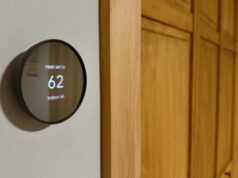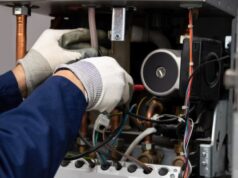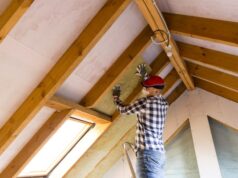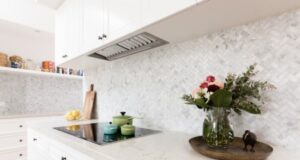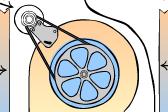
Evaporative coolers work by blowing air across wet elements to create a chilled breeze. These types of coolers are best suited to less humid climates.
What are evaporative air conditioners?
Evaporative cooling is a very simple process that uses air and water to cool a home. A pump is used to wet a cooling pad, then to draw air from outside through the pad, to evaporate moisture as cool air. The key is to keep the cooling pads as wet as possible during this process to ensure you get the best results. These types of systems are available in a variety of configurations, including portable units and roof-mounted ducted units.

How do evaporative air conditioners work?
Evaporative air conditioners use the principle of evaporation to produce a cooling effect. When it’s humid and the air is very moist, evaporation levels are lower, which means that the cooling effect of evaporative air conditioning is reduced. For that reason alone, evaporative coolers are most effective in hot, dry climates, and fairly ineffective in areas that experience more humidity.
Is an evaporative cooler right for my house?
For an evaporative air conditioner to work effectively, some windows or outside doors must be open, or some other form of ventilation must be provided. This is to allow the hot air to escape. Evaporative cooling is suited to households where doors and windows can be left open.
For ducted units, the best approach is to open the windows or outside doors that are furthest away from the air conditioning vents or ducts. In the rooms with air conditioning vents, try to maintain an exhaust area (e.g. an open window or door) that is about twice the size of the vent opening.
Moisture and condensation problems
When installing an evaporative air conditioner, you also need to think about how the added moisture in the air may affect your home. It’s ultimately the installer’s responsibility to ensure that everything’s OK, but a badly planned evaporative air conditioner can cause condensation to form on windows – or worse, in wall cavities if vapour barriers aren’t properly installed.
Running cost vs. performance
Evaporative air conditioners use significantly less energy than refrigerative air conditioners, so provided that they’re suitable to your needs, you can save a considerable amount of money. How much you can save varies from model to model and with power costs. Evaporative air conditioners use about 20% of the electrical energy required to operate a comparable refrigerated air conditioner, although they offer very different types of comfort and also consume water.
|
Advantages
|
Disadvantages
|

